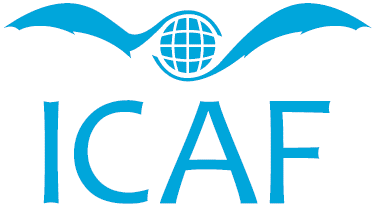Tools and methods for landing gear fatigue analysis with surface treatment effectsPaper: PPT: Session: Session 12: Fatigue life enhancement and repair solutions II Room: Theatre café: parallel Session start: 10:50 Wed 28 Jun 2023 Rob Plaskitt rob.plaskitt@hbkworld.com Affifliation: Hottinger Bruel & Kjaer Ltd Michelle Hill michelle.hill@hbkworld.com Affifliation: Hottinger Bruel & Kjaer Ltd Andrew Halfpenny andrew.halfpenny@hbkworld.com Affifliation: Hottinger Bruel & Kjaer Ltd Ben Griffiths ben.griffiths@sesut.com Affifliation: Select Engineering Services Andrew Clark andrew.clark.8@us.af.mil Affifliation: USAF 417 SCMS/GUEA, Landing Gear Systems Ben Madsen benjamin.madsen@ga-si.com Affifliation: General Atomics Systems Integration Topics: - Life extension and management of ageing fleets (Genral Topics), - Fatigue life enhancement methods and repair solutions (Genral Topics) Abstract: Landing gear manufacturing and overhaul/maintenance processes alter surface material properties that influence fatigue life. The effect of these processes was not accurately accounted for in legacy United States Air Force (USAF) landing gear designs. As aging aircraft in the USAF fleet continue to be pushed beyond their originally intended service life, it has become increasingly more critical to characterize the effect of specific surface processing conditions on fatigue life. For this reason, USAF Landing Gear Systems (417 SCMS/GUEA), Select Engineering Services (SES), General Atomics Systems Integration (GA-SI), and the Hottinger Bruel & Kjaer (HBK) Advanced Materials Characterization & Test facility (AMCT) are conducting research/testing to develop material fatigue data, tools and methods that incorporate surface treatment effects for USAF landing gear fatigue models. Surface treatment factors (K factors) from this strain-life fatigue testing programme are used to modify baseline strain-life curves to account for material surface conditions during fatigue prediction calculations from finite element stress analyses. HBK and SES have tested and characterised >20 fatigue curve datasets to derive multiple surface treatment K factors for 3 common landing gear materials; 300M steel, 4340 steel and 7075 aluminium alloy. Surface treatment conditions include chrome plating, anodising, shot peening and combinations and/or repetitions of these, for example, “shot peen, chrome, strip, chrome” to represent repeated landing gear overhaul/maintenance processes. SES has developed material assessment and predictive analysis tools for these fatigue test data for surface treatment K factor calculation, visualisation, and integrated application into fatigue simulations. The presentation will: • introduce the project and relation to USAF landing gear surface treatment procedures • provide an overview of material and surface treatment fatigue tests and characterizations • describe surface treatment K factor raw fatigue data and fitted strain-life curve tools • describe integrated application into fatigue simulation and predictive analysis tools Positive outcomes and conclusions resulting from completed surface treatment research and analysis include: 1. Increased confidence in life extension for aging aircraft landing gear components 2. The timely removal of landing gear components from service to decrease the risk of failure 3. The potential for improvements to repetitive overhaul processes that will reduce their negative impact on fatigue life |

ICAF 2023
Delft, The Netherlands, 2023